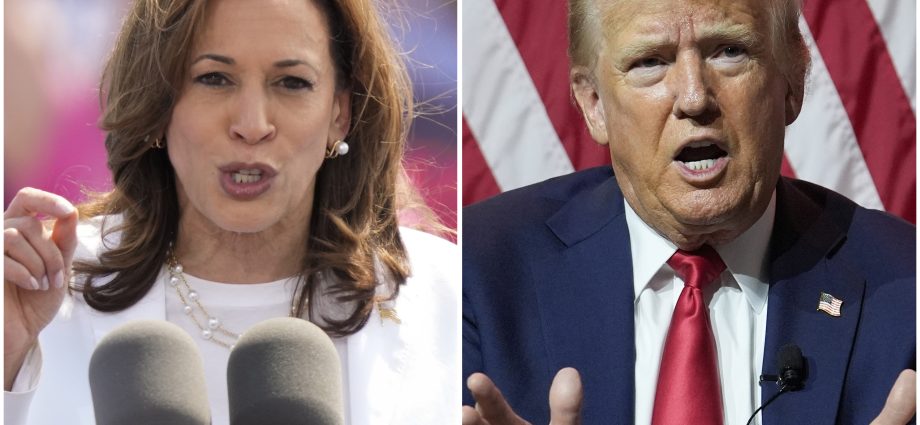PHOTO: NEWSWEEK
As the 2024 presidential election approaches, the debate around housing policy in the United States is heating up, particularly in the context of two prominent figures: former President Donald Trump and current Vice President Kamala Harris. Both have made their stances on the housing market clear, but their approaches and potential effectiveness differ significantly. In this article, we’ll explore their policies and qualifications to address the pressing issues facing the U.S. housing market.
The Current State of the U.S. Housing Market
Before delving into their contrasting views, it’s essential to understand the state of the U.S. housing market. The country is grappling with a myriad of challenges, including rising home prices, a shortage of affordable housing, and increasing interest rates. Homeownership remains a distant dream for many Americans, especially millennials and lower-income families. With these issues at the forefront, the need for effective housing policy has never been more crucial.
Donald Trump’s Approach
During his presidency, Trump’s administration focused on deregulation and tax cuts, aiming to stimulate economic growth. His approach to housing can be summarized as follows:
- Deregulation: Trump advocated for reducing regulations on the housing industry, arguing that this would spur construction and ultimately lead to more affordable housing options. His administration rolled back numerous regulations intended to protect consumers and the environment, claiming that these regulations stifled development.
- Tax Cuts: The Tax Cuts and Jobs Act of 2017 included provisions that benefitted real estate investors, such as lowering the corporate tax rate and allowing for immediate expensing of certain investments. While these measures were designed to incentivize investment in housing, critics argue that they disproportionately favored wealthier Americans and investors rather than addressing the needs of average homebuyers.
- Immigration Policies: Trump’s strict immigration policies also impacted the housing market, particularly in construction. A significant portion of the U.S. construction workforce comprises immigrants. Restrictions on immigration could exacerbate labor shortages in this sector, hindering the ability to meet housing demands.
Police surround shooters home: Former President Donald Trump assassination attempt | WATCH
Kamala Harris’s Approach
In contrast, Vice President Harris has emphasized a more interventionist approach, focusing on social equity and support for lower-income families:
- Affordable Housing Initiatives: Harris has advocated for substantial investments in affordable housing, proposing plans to increase the availability of low-income housing and support first-time homebuyers. Her proposals include increasing funding for the Housing Trust Fund, which aims to provide housing assistance to the lowest-income households.
- Addressing Racial Inequality: A significant part of Harris’s housing policy involves addressing systemic racism in housing. She has proposed measures to combat discrimination in housing lending and practices, aiming to ensure equal access to homeownership for all Americans, regardless of race.
- Support for Renters: Recognizing the growing number of renters in the U.S., Harris has also focused on policies to protect renters, such as extending eviction moratoriums during crises and increasing funding for rental assistance programs.
Who is Better Equipped to Tackle the Housing Market?
Evaluating who is better equipped to tackle the U.S. housing market ultimately hinges on the specific issues at hand and the values of the voters.
- For Trump: Supporters argue that deregulation and tax cuts can stimulate economic growth, ultimately leading to more housing construction and availability. They believe that a free-market approach is necessary to restore balance to the housing market.
- For Harris: Advocates contend that addressing systemic inequalities and investing in affordable housing is crucial for ensuring that all Americans can achieve homeownership. They argue that a more comprehensive approach that considers social equity will yield long-term benefits for the housing market and society as a whole.
Donald Trump artificially boosted his wealth by billions through fraudulent means
As the election draws near, the question of who can better address the U.S. housing market remains contentious. Donald Trump’s pro-business approach focuses on deregulation and tax incentives, while Kamala Harris emphasizes equity, affordable housing, and support for renters. Voters will need to weigh these differing philosophies and their potential impacts on the housing market as they head to the polls. Ultimately, the success of either candidate in tackling these complex issues will depend on their ability to navigate the challenges posed by a rapidly changing housing landscape.
.












